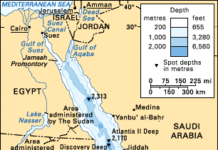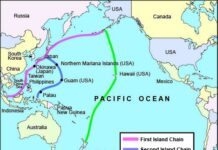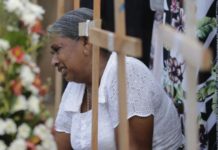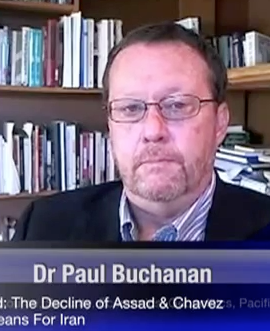Pacific Scoop PIF Coverage
PNG accepts deep sea mine talks but not ‘led by emotion’Rua
http://pacific.scoop.co.nz/2012/08/png-accepts-deep-sea-talks-but-not-led-by-emotion/

Pacific Network on Globalisation coordinator Maureen Penjuli and Murray Isimeli of the Pacific Conference of Churches are warning Pacific leaders to carefully consider the risks of deep seabed mining. Image: Cook Islands News
Pacific Scoop:
Report – By Henry Yamo on Rarotonga
Papua New Guinean Prime Minister Peter O’Neill welcomes open and transparent discussion not “led by emotion” on deep seabed mining and says his government’s options are open.
The government has been facing mounting opposition over the Canadian company Nautilus Minerals project for the Bismarck Sea by international, regional and national NGOs, environmental groups and stakeholders which have called for a moratorium.
“We welcome any contributions non-government organisations and other stakeholders may have on this issue,” he told reporters gathered for the Pacific Islands Forum in the Cook Islands yesterday.
 But the indications – including scientific data – on this project available to the government indicated that this particular mining prospect “is possible”, he said.
But the indications – including scientific data – on this project available to the government indicated that this particular mining prospect “is possible”, he said.
“But of course, as a government, we will look into the issues that are being raised by the NGOs and the environmental groupings, and we want sensible discussions on this matter and not ones that are led by emotions,” he said.
Earlier in the day, Pacific civil society groups, mostly those based in PNG and around the Pacific, raised the issue of deep seabed mining and launched a legal opinion on the application of the so-called “precautionary principle” to deep seabed mining in the Pacific at the Edgewater Resort in Rarotonga.
They said in a combined statement that given the considerable risks and uncertainties surrounding the environmental impacts of mining activities, the correct interpretation of the precautionary principle led to only one plausible result – a moratorium on deep sea bed mining.
Legal opinion
The statement said that in a 10 page legal opinion, the Environmental Law Alliance Worldwide (ELAW), had concluded that the application of a precautionary principle supported a moratorium until risks of harm to marine environment and coastal people were better known and understood.
![]() According to the legal opinion, little is known about sea floor mining technology, its efficiency, safety and the impacts that may arise from the process.
According to the legal opinion, little is known about sea floor mining technology, its efficiency, safety and the impacts that may arise from the process.
The deep sea environment was a unique and diverse realm that had never been extensively researched and is not well understood, the statement said.
Effery Dademo, programme manager for ACT NOW, a civil society group in Papua New Guinea, said: “The precautionary principle is clearly cited in the Rio Declaration. There is a clear obligation on all states to widely apply the principle.”
She said this included the need for an open, informed and democratic process involving all potentially affected parties and this is something that has not happened prior to the introduction of experimental seabed mining.
The Papua New Guinea government says it will take into account what is being presented by interest groups.
“We will look at all the arguments that are being presented to us, before we take a position on this. But at present, Nautilus, which is involved in sea bed mining in our country, have a licence and they will continue to pursue their development programme until we see a fully developed integration of what they have to do,” O’Neill said.
‘Investment destination’
“We appreciate that we want to make PNG an investment destination, not a place where rules change half way through.”
O’Neill said the government wanted to do the right thing to companies that had invested in the licences issued and there was no point trying to frustrate prospective developers because they had an obligation to their shareholders as well.
He said that the government would assess the outcomes.
But at present there were a lot of arguments that were going on.
“We respect the arguments being presented, but they must be credible, transparent and accountable for all stake holders,” O’Neill said.
Henry Yamo is a postgraduate communication studies student at AUT University reporting with the Cook Islands News team.
Unless expressly stated otherwise, the findings, interpretations and conclusions expressed in this media release item do not necessarily represent the views of 36th Parallel Assessments.













